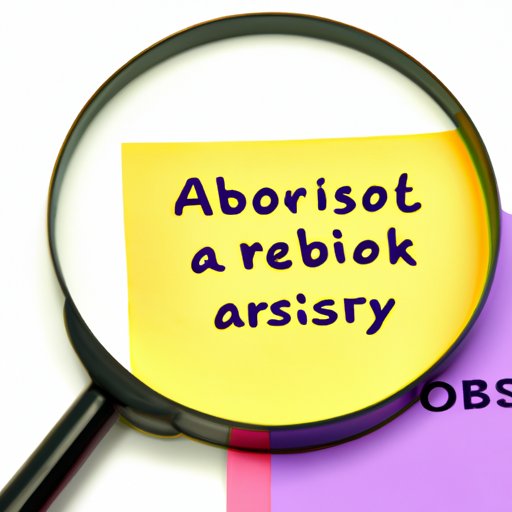Introduction
Abrosexuality is a sexual orientation that is not widely known or understood. It is important to have a comprehensive understanding of abrosexuality for those who experience it and their loved ones. In this article, we will explore what abrosexuality is, the experiences of individuals who identify as abrosexual, the myths and stereotypes surrounding abrosexuality, navigating relationships as an abrosexual person, the intersection of gender and abrosexuality, and supporting abrosexual loved ones.
Understanding Abrosexuality: A Comprehensive Guide
Abrosexuality is a sexual orientation that is characterized by one’s sexual attraction and desire fluctuating over time. It is an identity that is not static and can be fluid. Individuals who identify as abrosexual may experience shifts in their sexual attraction and desire, making it unclear or confusing at times. It is important to note that abrosexuality is a legitimate and valid sexual orientation, just like heterosexuality or homosexuality.
For individuals who experience abrosexuality, it can be a complex and confusing experience. They may struggle to comprehend their fluctuating sexual attraction, and may experience feelings of guilt, shame or inadequacy. The lack of awareness about abrosexuality can contribute to misunderstanding and ostracism, further compounding feelings of isolation and loneliness.
Many abrosexual individuals feel relieved when they discover that there is a term that describes their experience. Having a language to describe their identity and experiences can be empowering and provides a sense of belonging.
Breaking Down the Myths and Stereotypes of Abrosexuality
Like with any marginalized identity, abrosexuality has been subject to myths and stereotypes. Some of these myths include the belief that individuals who identify as abrosexual are promiscuous, confused, or indecisive. Others assert that abrosexuality is a phase that individuals will eventually grow out of, or that it’s an excuse for individuals who cannot commit to a monogamous relationship.
These stereotypes are harmful, as they perpetuate misconceptions and misunderstandings about those who experience abrosexuality. It is essential to challenge these stereotypes and recognize the validity of each individual’s experience.
Navigating Relationships as an Abrosexual Person
Abrosexual individuals experience unique challenges and opportunities in relationships. Their fluctuating sexual attraction and desire can complicate their romantic and sexual relationships. For example, they may feel guilty or conflicted when their attraction to their partners changes, causing strain on their relationship. Conversely, abrosexuality can also provide opportunities for exploration and experimentation within a relationship, if both parties are open and communicative about their desires and boundaries.
For abrosexual individuals, it is important to communicate with their partners about their identity and to seek out partners who are supportive and understanding of their experiences.
The Intersection of Gender and Abrosexuality
The experience of abrosexuality is intricately linked to gender identity. Many abrosexual individuals report that their fluctuating attraction is influenced by their gender identity. For example, some may experience more attraction to one gender over another depending on how they are feeling about their own gender identity at the time.
Additionally, the intersection of abrosexuality and gender can further complicate an individual’s experience. Abrosexual individuals who identify as non-binary may struggle to find language to describe their experiences, as abrosexuality is often described in relation to binary genders.
Supporting Abrosexual Loved Ones: What You Need to Know
Friends, family members, and partners of abrosexual individuals can provide crucial support for their loved ones. It is essential to educate ourselves on abrosexuality and to listen to the experiences of those who identify as abrosexual.
When supporting our loved ones, it is important to validate their experiences and refrain from perpetuating myths and stereotypes. We should also encourage them to explore their identities and provide a safe and supportive environment for them to do so.
Conclusion
Abrosexuality is a legitimate and valid sexual orientation that deserves our understanding and support. Myths and stereotypes surrounding abrosexuality can limit our ability to empathize with those who experience this orientation, further marginalizing individuals and contributing to feelings of isolation and inadequacy.
By educating ourselves and chipping away at these misconceptions, we can support and validate abrosexual individuals, providing them with a safe space to explore and embrace their identity.
